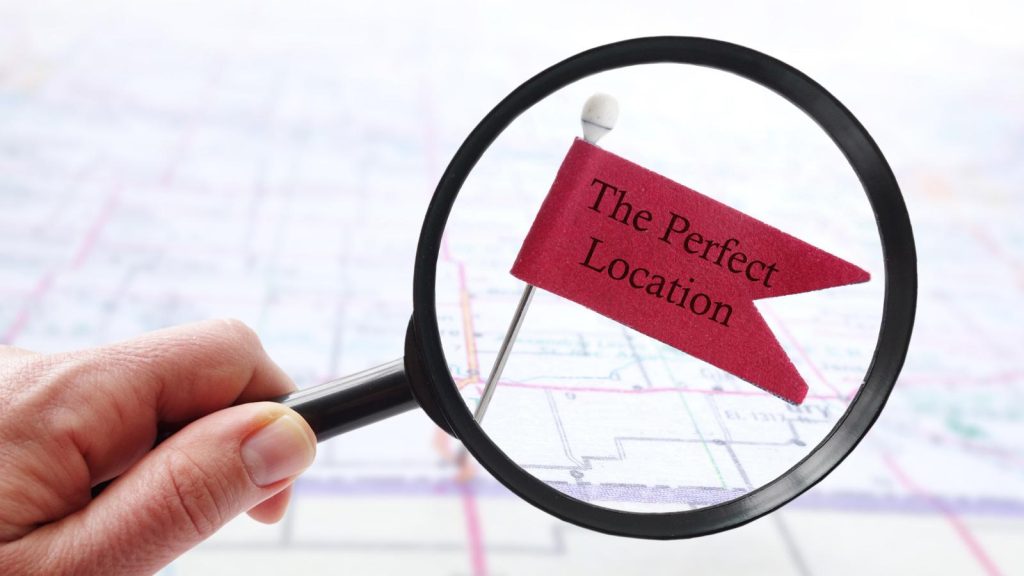Starting a business can be both exciting and daunting. One crucial decision that could have lasting ramifications on your venture is choosing a perfect location; your choice could be vital in determining its growth potential, profitability, and long-term viability.
In this blog post, I’ll discuss critical factors to consider when selecting a suitable office location, helping you make an informed choice that fits your goals and objectives.
Table of Contents
Assess Your Target Market For A Perfect Location
Understanding your target market and customers is of utmost importance when choosing a location for your business. Analyzing your ideal customers and their preferences will enable you to select an area that allows for their accessibility and engagement.
As part of conducting market research, conduct an in-depth analysis of your competitors’ presence at different locations and assess saturation levels across each industry sector in each locale. Look for potential gaps or openings and identify them.
This way, you can strategically position your business where growth and expansion are most likely.
Assessing Infrastructure and Accessibility
An effective business relies on a solid infrastructure to support its operations. Assess the availability and quality of utilities such as electricity, water, and internet connection. Their availability impacts productivity and customer satisfaction.
Accessibility is of equal importance. Consider transportation options for both employees and customers, such as well-connected roads or public transit; evaluate parking availability (especially if you anticipate significant customer growth).
You should also make sure you are near suppliers and distributors who will help ensure smooth operations of products, services, etc.

Amenities and Environment At The Ideal Location
Attracting and retaining top talent is critical to business success; amenities and the environment in their chosen location play a pivotal role here. A positive working environment can bolster employee morale, productivity, and overall satisfaction.
Look for areas offering amenities such as green spaces, fitness centers, restaurants, or entertainment options that help create an ideal work-life balance for employees.
You may even want to find the best location for your food so workers will have a great place to have lunch.
Legal and Regulatory Considerations
Each location imposes different legal as well as regulatory obligations that businesses must abide by to establish themselves there.
Before making your final choice, familiarize yourself with local rules regarding licensing, permits, zoning restrictions, and taxes to ensure compliance with all regulations.
Stay compliant with applicable laws to protect your business and help prevent unnecessary legal issues or financial penalties.
Consulting legal professionals for assistance is often beneficial and allows businesses to navigate potential hurdles more smoothly.
Finances For Your Perfect Location
Lastly, check out the pricing before you find the perfect location. You want to be sure your small business can afford it.
That includes the local taxes, any building costs, and insurance premiums on the property.
Conclusion – Location The Perfect One
Selecting the ideal location for your business requires careful consideration of various aspects. These may include understanding your target market, assessing infrastructure and accessibility needs, and considering amenities, supportive environments, and legal/regulatory restrictions that affect operations.
All of these can help you make informed decisions, which will put your venture on the road toward success as you find your perfect location or the perfect retreat for your business.
As they always say, it’s location, location, location!
FAQs: Choosing the Perfect Location for Your Business
How important is location for a business’s success?
Depending on the type, location can make or break your business. Foot traffic, visibility, accessibility, and proximity to your target market are essential factors. Online businesses may not rely on physical locations, but for brick-and-mortar stores, it’s key.
What factors should I consider when choosing a location?
Consider your target audience, competition, zoning laws, accessibility, nearby businesses, safety, and cost. Each factor will influence how well your business performs in that area.
How do I determine if my target audience is in the area?
Research demographics, such as age, income levels, and lifestyle preferences. You can use census data, community reports, or foot traffic analysis to determine whether your ideal customer lives or works nearby.
Should I choose a location near my competitors?
It depends. Being near competitors can attract customers who are already looking for your type of business. However, you might want to find a less competitive area if the market is oversaturated.
How important is visibility for my business location?
It’s critical for businesses relying on foot traffic, like retail stores and restaurants. If customers can’t easily see your business, you might miss out on opportunities. Consider signage and street visibility.




